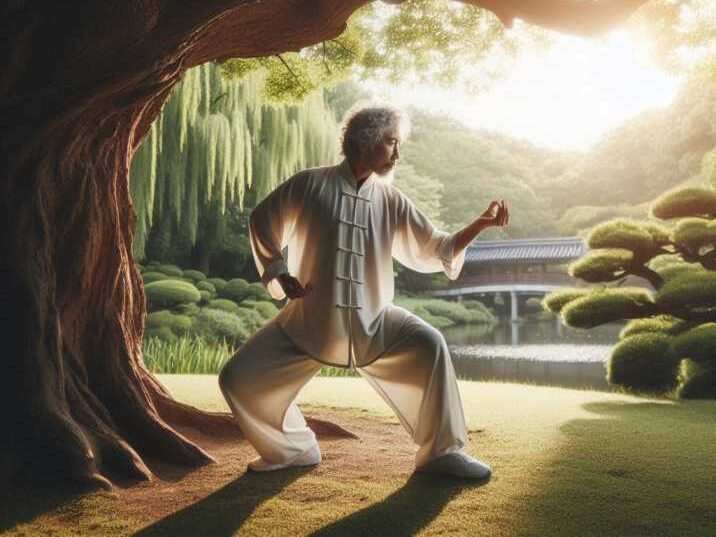Introduction
Table of Contents
Martial arts are more than just physical training or self-defense techniques. They offer incredible spiritual and mental benefits of martial arts that can improve a person’s overall well-being. Practising martial arts like Karate, Taekwondo, or Jiu-Jitsu teaches values like discipline, patience, and mindfulness. It’s not just about punching and kicking—it’s about growing stronger mentally and emotionally. This article will explore how martial arts can help improve your focus, boost your confidence, and teach lifelong skills for a balanced and fulfilling life.

Mental Benefits of Martial Arts
1. Improved Focus and Concentration
Practicing martial arts requires complete attention during training. Students learn to block distractions and focus on specific tasks, whether it’s perfecting a technique or remembering a sequence of moves. This skill translates to better performance in school, work, and daily activities.
How Martial Arts Help Focus
- Memorizing combinations sharpens memory
In martial arts, practitioners must remember specific sequences of movements, such as kicks, punches, and defensive maneuvers. Repeatedly practicing these combinations not only sharpens memory but also strengthens the brain’s ability to retain and recall information. This skill is especially beneficial for kids as it supports their academic learning and problem-solving abilities. - Training teaches patience and step-by-step learning
Martial arts emphasize progress through gradual improvement. Students don’t master complex techniques overnight; instead, they break them down into manageable steps. This process teaches the importance of patience and persistence, helping individuals tackle challenges in martial arts and other areas of life with a calm and steady approach. - Staying in the present moment increases awareness
To execute moves correctly and react to opponents, martial artists must remain fully focused on the present moment. This practice of mindfulness helps students block out distractions and improve situational awareness. Over time, this skill carries over into daily life, making it easier to concentrate on tasks and stay mentally alert.
2. Stress Relief and Relaxation
- Deep breathing exercises to calm the mind
Deep breathing is a fundamental part of many martial arts, especially styles like Tai Chi and Aikido. Controlled breathing slows the heart rate, reduces anxiety, and promotes relaxation. By focusing on their breath, practitioners can release tension and gain a sense of calmness, even during stressful situations.
- Stress Relief and Relaxation Martial arts are a great way to reduce stress. The physical activity involved releases endorphins—hormones that help you feel good and relaxed. Styles like Tai Chi focus on slow movements and deep breathing, promoting a sense of calmness.
3. Meditation sessions before or after practice
Many martial arts schools include meditation as part of their training. Whether it’s a few minutes of silence or guided mindfulness, these sessions help practitioners center their thoughts and let go of worries. Meditation combined with martial arts creates a balance between mental clarity and physical effort, leaving students feeling refreshed and at peace.
3. Boost in Confidence
Every time you master a new skill or earn a belt, your confidence grows. Martial arts instill a belief in one’s abilities and help overcome self-doubt. Knowing you can protect yourself also makes you feel safer and more self-assured.
Spiritual Benefits of Martial Arts
1. Mindfulness and Presence
Martial arts encourage practitioners to live in the moment. Whether it’s throwing a punch or practicing a stance, every move requires mindfulness. This skill helps reduce overthinking and promotes a sense of peace.
Examples of Mindfulness Practices in Martial Arts:
- Tai Chi: Flowing movements paired with deep breathing.
- Aikido: Focusing on harmony and flow with your opponent.
2. Inner Peace and Emotional Balance
Martial arts teach control over emotions like anger and frustration. Instead of acting impulsively, students learn to channel their energy constructively. The lessons from training often apply to handling conflicts in daily life.
3. Connection with Values and Traditions
Many martial arts have strong spiritual roots. For example:
- Karate emphasizes humility and respect for others.
- Kung Fu teaches balance between body, mind, and soul.
These philosophies promote moral growth and a stronger connection to one’s inner self.
The Importance of Discipline in Martial Arts
Martial arts demand discipline, which extends beyond the dojo. Students must follow instructions, practice regularly, and maintain respect for their instructors and peers. This helps develop a strong work ethic, time management skills, and self-control.
Table of Information about Spiritual and Mental Benefits of Martial Arts
| Benefit | Description | Key Martial Arts Style |
|---|---|---|
| Improved Focus | Concentration during training helps with studies and work. | Karate, Taekwondo |
| Stress Relief | Physical activity releases stress and promotes calmness. | Tai Chi, Jiu-Jitsu |
| Self-Discipline | Builds the ability to control impulses and stay committed. | Kung Fu, Karate |
| Confidence Boost | Achieving goals builds self-esteem and inner strength. | Judo, Muay Thai |
| Mindfulness | Teaches being present in the moment through movement. | Tai Chi, Aikido |
Conclusion
Martial arts offer countless spiritual and mental benefits, from boosting focus and confidence to reducing stress and enhancing mindfulness. They also promote valuable life skills like discipline, respect, and emotional control. Whether you’re a child looking to improve in school or an adult seeking balance in life, martial arts can be a powerful tool for personal growth. It’s not just a sport—it’s a way of life!
FAQs
- How do martial arts improve focus?
Martial arts improve focus by teaching students to block distractions and stay fully present during training. - What martial art is best for reducing stress?
Tai Chi is excellent for stress relief because of its slow, meditative movements. - Can martial arts help with confidence?
Yes, achieving goals and learning self-defense techniques boosts confidence. - Is martial arts good for emotional control?
Absolutely! Martial arts teach emotional balance and how to channel energy positively. - What’s a spiritual benefit of martial arts?
Martial arts promote mindfulness and inner peace, helping you stay connected to your values.


